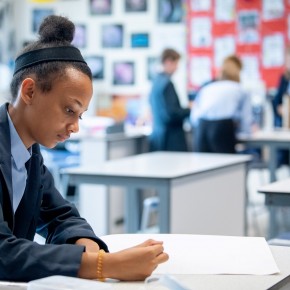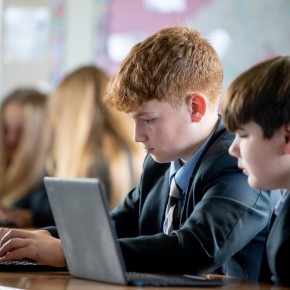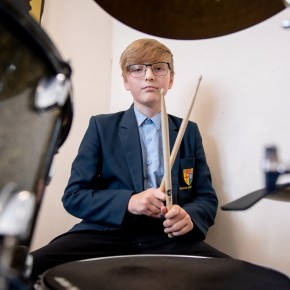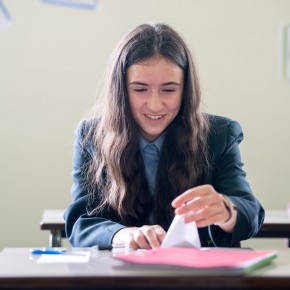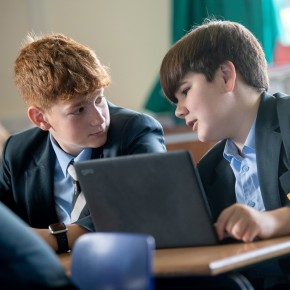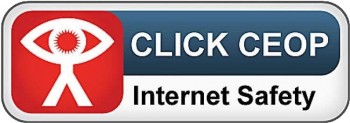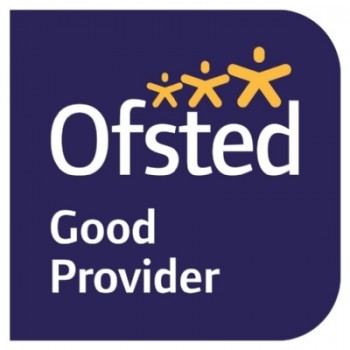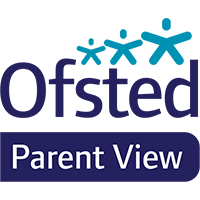Year 7
Students in Year 7 have the opportunity to study three different Design and Technology subjects; Food, Graphics and Product Design. Students spend 12 weeks in each subject focusing on a different project and area of study.
In their food lessons, students will learn basic cookery skills and how to use a variety of kitchen equipment. Practical lessons are a balanced mixture of sweet and savoury products allowing students to create healthy snacks and meals that they can recreate at home. Students are given a comprehensive grounding in healthy eating and what a balanced diet is. This year we are introducing elements of food science and students will be investigating cross contamination and enzymic browning.
In graphics, students get to research, design, create and make their own pop-up book based on the theme of Thrigby Wildlife Gardens. Students are set a commercial design brief which they will analyse and research. They will study different pop-up mechanisms, children’s books and design styles before creating their own 3D products.
During their Product Design lessons, Year 7 students will make a pewter keyring. This involves research, designing - using a theme of their choice, use of hand tools and some workshop machinery including a brazing hearth to melt the pewter, with particular emphasis on Health and Safety. Finally, students use a range of abrasives to produce a shiny, unique key ring.
Year 8
Students in Year 8 build on the skills and techniques that were established in Year 7 to produce a wider and more complex range of products. Students study the same subjects from Year 7 which are Food, Graphics and Product Design. Students spend 12 weeks in each subject focusing on a different project and area of study.
In their food lessons, students will be developing their cookery skills to create a range of savoury dishes. They will be looking at local and seasonal foods and their nutritional focus for the term is on carbohydrates and energy. Practical lessons are savoury orientated and allow students to develop a range of practical skills. All of these dishes being well balanced, nutritional meals that students can plan, budget and cook independently. Students’ knowledge and understanding of food science is extended with a focus on fats and oils in pastries and emulsions.
In graphics, students develop their own ideas for a music festival. This project uses hand drawing, computer graphics skills and perspective drawing. Students research and plan their own commercial products, create initial and developed design ideas before completing their final merchandise ideas independently. Students are responsible for the project management of their work, to ensure that they have a commercially viable product that fits the design brief.
During their Product Design lessons, Year 8 students design, make and create a Hotel for Bugs. This project involves research into cultures of the world and useful bugs in the garden. Students will then design and make their own Bug Hotel which will encourage wildlife. A variety of materials can be used and students are encouraged to think about recycling and reusing materials. Students’ knowledge and skills in the workshop are increased as they use different tools and equipment, again with particular emphasis on Health and Safety
